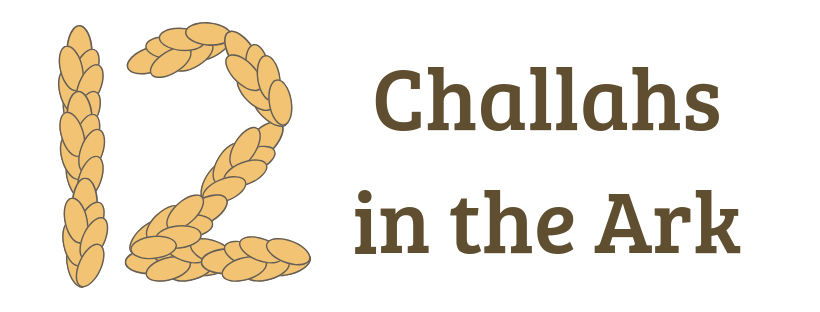The stories almost always begin with a man named Shumel or Mendel or Menachem, but this one began with Jacobi.
“In the times of the Ancient Temple, the people offered twelve loaves of challah to God. Jacobi had never heard of God eating bread, but he figured it was worth a shot. And so the next Friday afternoon, he arrived at the synagogue early, and, with a little prayer and skepticism, he carefully tucked twelve fresh challot into the ark.”
At age seven, I took these words for fact. Could you even fit twelve loaves of bread in our ark? My eyes darted to the transportable ark sitting on the bima of our makeshift synagogue, a Presbyterian church we transformed once a month so that the Jews of Northeast Georgia could come together to celebrate Shabbat.
Mitch, our lay leader, continued the story. “Jacobi left, and moments later the synagogue’s caretaker arrived. ‘God, I am at my wits end. I have no money to provide for my family, not even a scrap of bread to feed them. I need a miracle.’ As he turned to leave, he bumped the ark, and out rolled one of the challot. Astonished, he unveiled the other loaves and gleefully carried them home to his family.”
I imagined a stooped, balding man grinning as he balanced his miracles down a cobblestone path to his house. I rested my head on my mom’s shoulder as Mitch continued.
“The next week, Jacobi brought twelve more loaves, and the caretaker found them, and the week after that, and the week after that, for twenty years. Until one day, Jacobi was running late, and as the caretaker pulled back the curtain of the ark, he was surprised to find no miracles sitting among the Torah. He was even more surprised to turn around and find the village baker with an armful of challah.
“The two men realized what had happened. One brings the bread and the other takes the bread, and God gets the credit.”
Mitch began to wrap up his sermon, explaining the power that an act of kindness can have, when I called out from the pews.
“Tell it again!”
The request came from me (and I only thought to be embarrassed after the words left my mouth). The tale had compelled me, the way folktales do, and I felt that if I heard it one more time, I might be able to wrap my mind around its full meaning. There was more to it than kindness.
Without hesitation, Mitch restarted the story from the beginning, regardless of how the older congregants might have grumbled at the thought of oneg being delayed another couple of minutes. Once again, I was completely engrossed.
I still don’t totally understand the moral of the story. Is it that doing good for one another is like God working through us? Or that sometimes we turn to God when we should turn to each other? Or maybe it’s that God answers our prayers in ways we don’t expect or understand.
Regardless, it sticks with me to this day—not the story itself, although there’s plenty to learn from it. Rather, I still think about the fact that Mitch did tell it again, patiently, with no sense of rush or irritation. I felt important and worthy of time and energy, despite my age.
In my work as a literacy educator, I often hear parents joke exasperatedly about their kids’ requests to read the same bedtime stories over and over and over again. My advice to them is this: read that bedtime book one more time (for the millionth time). As a child grows, they could be gleaning something new, noticing hidden pictures they didn’t see before, or understanding a character’s actions in a more complex way. Help them learn that their interests, input, and questions matter.
Jewish study is set up in a similar model. Why do we revisit the Torah each year? We need to hear it again, to process it in light of new experiences, ever-changing circumstances, and changes in perspective. We study in pairs to benefit from the differences in each other; we study repeatedly to benefit from the difference in ourselves.
So when someone asks for you to tell the story again, don’t hesitate. Tell it again. It’s a gift that might just keep on giving in unexpected ways.




